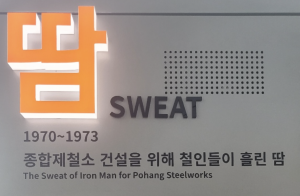Pohang: POSCO Museum
Photo essay of wall text of POSCO Museum of Pohang

Photo essay of wall text of POSCO Museum of Pohang

XXX

I am currently in the process of transitioning my M.A. level course on Science, Technology, and Development with 11 students to virtual instruction. One of my interests in engaging with COVID-19 is to examine how it (should) informs development ideologies and practices. How should students of development studies retool -- conceptually, methodologically, practically -- in wake of the pandemic?
The film is primarily the narratives of many first responders, so they play a large roll in the meassage being protrayed. They are seen as heros but also paid the price of their decisions through health issues.
No bibliography was given, but the citations that are used in the article are likely from medical records or government records of some sort.
It is difficult to determine where this document comes from. It deals with medicaid, so it is related to the government and healthcare.
It is supported by the 1992 and 2003 General Conference Resolutions, which provided the basis or understanding that there was a need for programs like this one.
Most of the data was collected through the stories that the people told the researchers. This was the best way for them to collect data, since most conditions are best told through stories. They were then able to pull numbers out or ask specific questions catered to the story.
This article is not about a disaster. Just allow more medical stories to circulate.